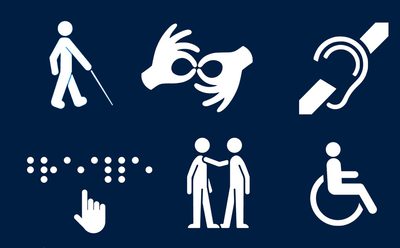Ottawa Airport now even safer: implements first airport-based Public Access Defibrillator Program in Canada
Published on December 14, 2000


Ottawa-Carleton Regional Police Service, Ottawa Airport and their partners, the Region of Ottawa-Carleton, the Canadian Corps of Commissionaires and airport Emergency Response Service today launched the first airport-based Public Access Defibrillators (PAD) Program in the country.
Two (2) defibrillators have been made accessible in public areas to increase the chance of survival for Sudden Cardiac Arrest (SCA) victims at Ottawa Airport. These defibrillators are located in heavy traffic public areas, clearly indicated by international medical symbols.
Paul Benoit, President and CEO of Ottawa Airport, said: "Safety at Ottawa Airport requires the collaboration of many agencies, including the police, firefighters, commissionaires, customs, hospitals, ambulance, airport and airlines employees and many more.
"Ottawa Airport is proud to be the first in Canada to implement the Public Access Defibrillator Program, thanks to the leadership of Ottawa-Carleton Regional Police and the Region of Ottawa. Similar programs in United States airports have saved many lives. We are proud to be at the leading edge of public safety in Canada."
Ottawa-Carleton Regional Police Service Chief Vince Bevan said: "We think that this partnership at Ottawa Airport will enhance public safety in this community. The launch of this program today is the result of a coordinated effort by a dedicated team of individuals. I hope that this initiative will prompt others to become involved and promote this kind of life-saving program at other public places."
Dr. Justin Maloney, added: "Early defibrillation is the most important thing you can offer anyone with a cardiac arrest. Programs like this are critical."
Phase 1 of the PAD Program included the installations of two defibrillators and a training program for all OCRP officers at the airport, Ottawa Airport Emergency Response Service and security personnel. Phase 2 will see training extended to Commissionaires and airport authority employees, while other tenants and airline employees will be offered training in Phase 3. Potentially, hundreds of employees at the airport will have been trained to operate a defibrillator.
Prior to implementing the PAD Program, Ottawa Airport Emergency Response Service and other local fire departments were often the first to respond to sudden cardiac arrests at Ottawa Airport. These groups have saved lives in the past.
Over 5 million people use Ottawa Airport each year, including approximately 3.4 million passengers this year. Ottawa Airport Authority operates the airport without tax dollars under a 60-year lease transfer agreement with Transport Canada. The Authority's mandate is to manage, operate and develop Airport facilities and lands in support of the economic growth of the National Capital Region.
Two (2) defibrillators have been made accessible in public areas to increase the chance of survival for Sudden Cardiac Arrest (SCA) victims at Ottawa Airport. These defibrillators are located in heavy traffic public areas, clearly indicated by international medical symbols.
Paul Benoit, President and CEO of Ottawa Airport, said: "Safety at Ottawa Airport requires the collaboration of many agencies, including the police, firefighters, commissionaires, customs, hospitals, ambulance, airport and airlines employees and many more.
"Ottawa Airport is proud to be the first in Canada to implement the Public Access Defibrillator Program, thanks to the leadership of Ottawa-Carleton Regional Police and the Region of Ottawa. Similar programs in United States airports have saved many lives. We are proud to be at the leading edge of public safety in Canada."
Ottawa-Carleton Regional Police Service Chief Vince Bevan said: "We think that this partnership at Ottawa Airport will enhance public safety in this community. The launch of this program today is the result of a coordinated effort by a dedicated team of individuals. I hope that this initiative will prompt others to become involved and promote this kind of life-saving program at other public places."
Dr. Justin Maloney, added: "Early defibrillation is the most important thing you can offer anyone with a cardiac arrest. Programs like this are critical."
Phase 1 of the PAD Program included the installations of two defibrillators and a training program for all OCRP officers at the airport, Ottawa Airport Emergency Response Service and security personnel. Phase 2 will see training extended to Commissionaires and airport authority employees, while other tenants and airline employees will be offered training in Phase 3. Potentially, hundreds of employees at the airport will have been trained to operate a defibrillator.
Prior to implementing the PAD Program, Ottawa Airport Emergency Response Service and other local fire departments were often the first to respond to sudden cardiac arrests at Ottawa Airport. These groups have saved lives in the past.
Over 5 million people use Ottawa Airport each year, including approximately 3.4 million passengers this year. Ottawa Airport Authority operates the airport without tax dollars under a 60-year lease transfer agreement with Transport Canada. The Authority's mandate is to manage, operate and develop Airport facilities and lands in support of the economic growth of the National Capital Region.
-30-
For information
Laurent Benoit, (613) 248-2050
Director of Communications and Public Affairs
Richard Dugal, Staff Sergeant
613.236-1222, ext. 5366, OCRP
